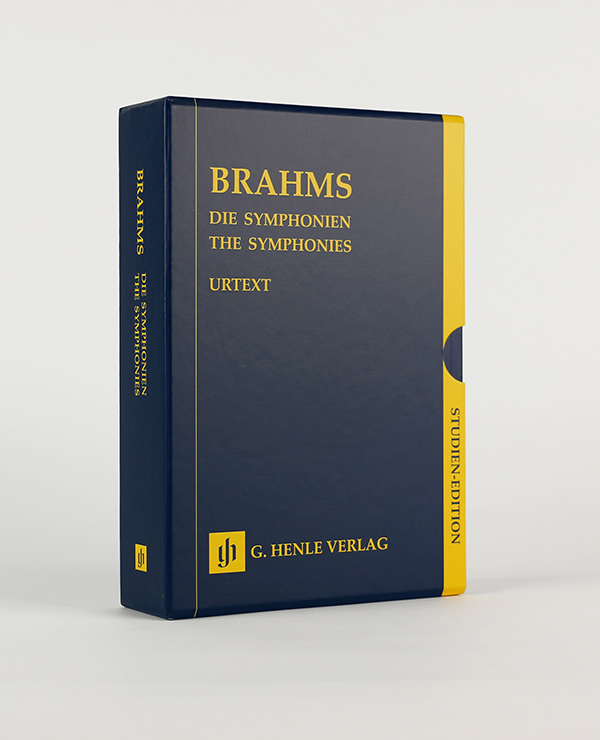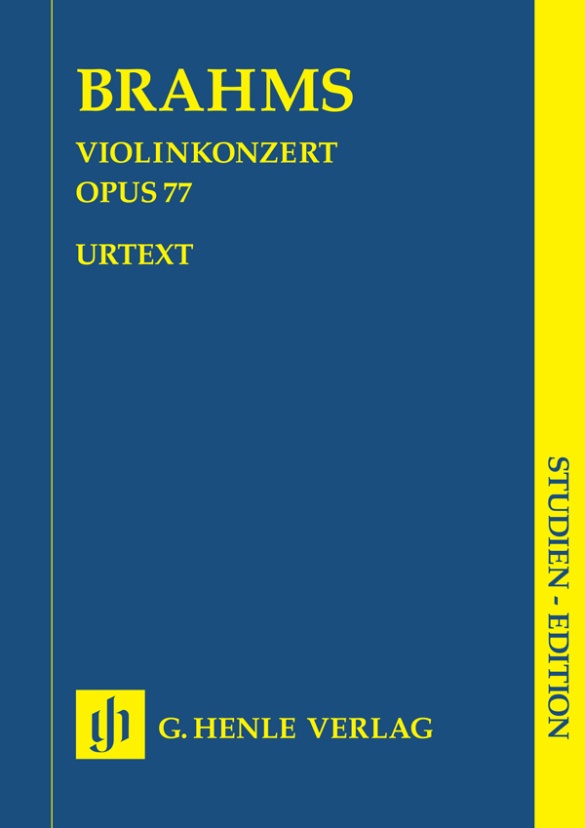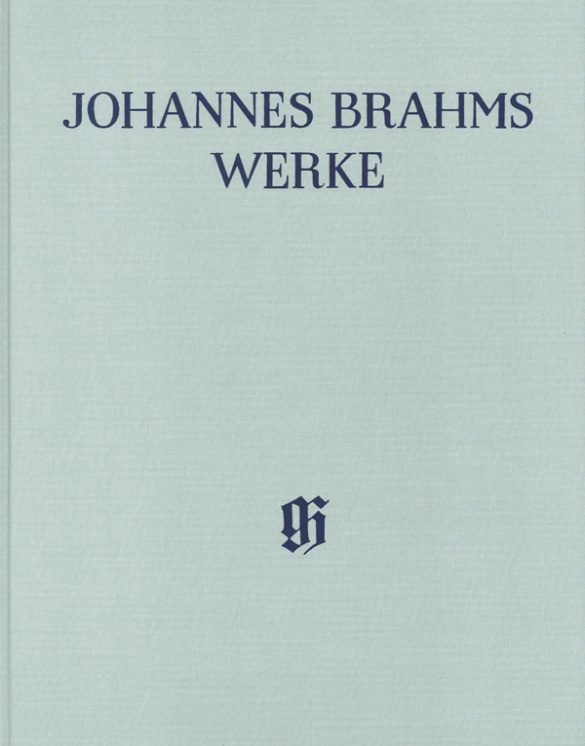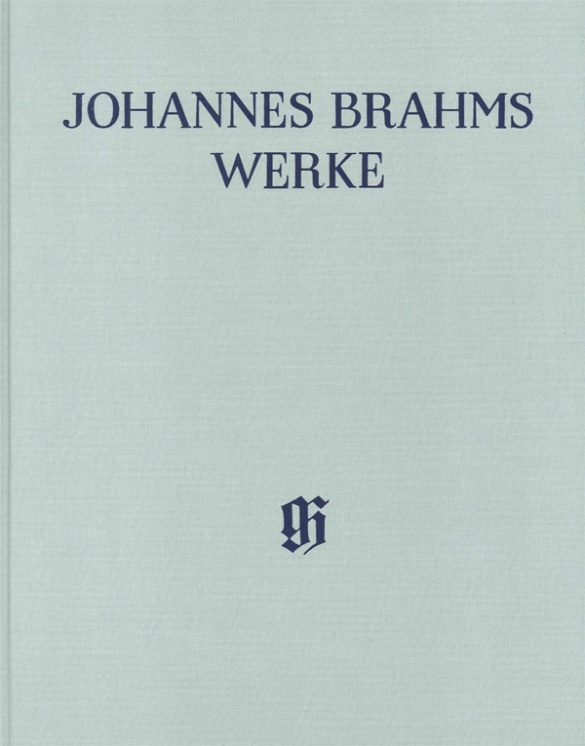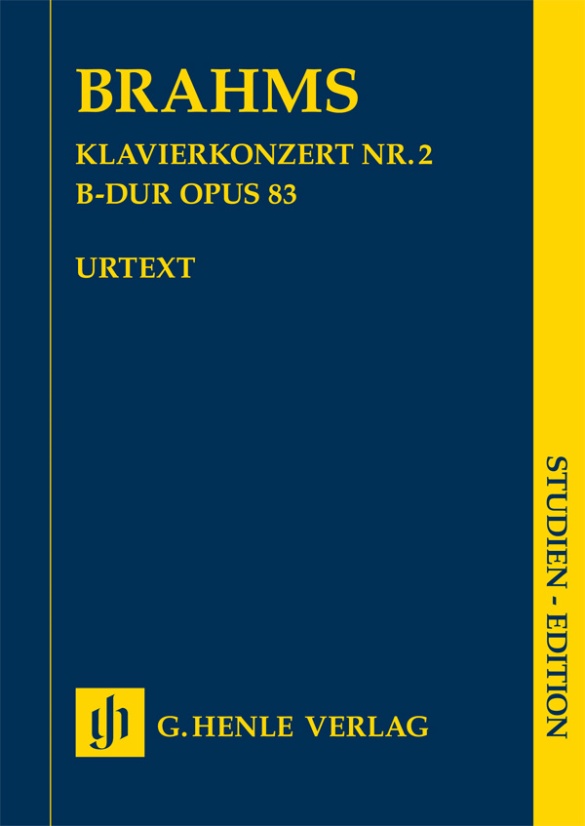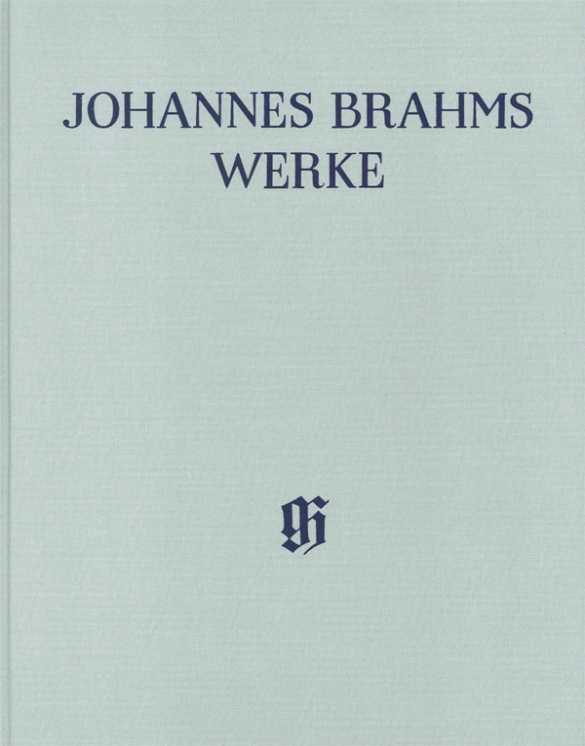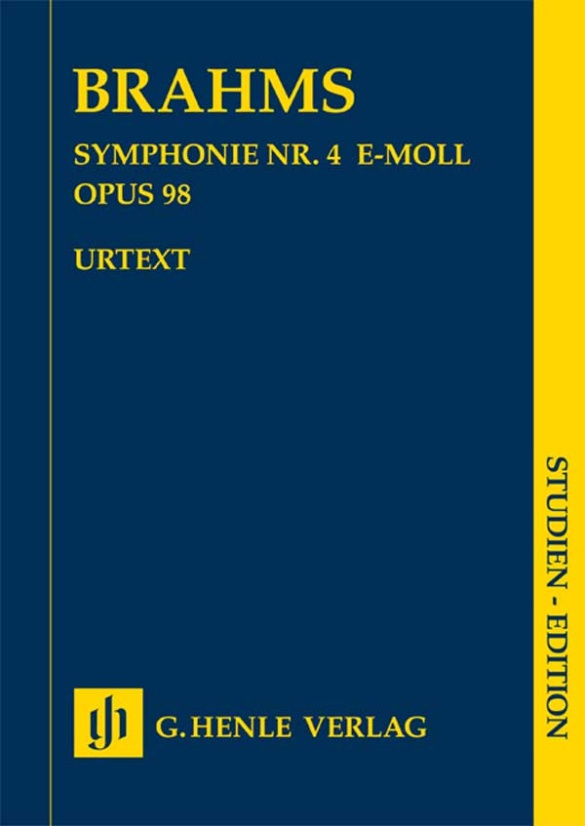

Johannes Brahms
Symphony no. 4 e minor op. 98
The genesis of the Fourth Symphony possibly goes back to the 1870s when Brahms was studying the Bach Cantata “Nach dir, Herr, verlanget mich”, whose chaconne theme forms the nucleus of the finale.
Around 29 August 1885 Brahms wrote to Hans von Bülow from Mürzzuschlag in Styria: “However I have a few entr’actes – which together form what one would usually call a symphony. […] I am afraid […], it takes after the climate in this region – the cherries do not ripen here.” Yet we are by no means speaking of “sour” cherries here. The work is today a part of the canon of classical-romantic symphonies. Our handy and inexpensive priced study edition is based on the musical text in the Johannes Brahms Complete Edition (HN 6015).
Content/Details
About the Composer

Johannes Brahms
His significant output comprises chamber music, piano works, numerous choral compositions and songs (including settings of folk-song lyrics), as well as large-scale orchestral works in the 1870s and 1880s. His compositions are characterized by the process of developing variation. He is considered an antithesis to the New German School around Liszt, and an advocate of “absolute” music.
| 1833 | Born in Hamburg on May 7, the son of a musician. His first piano instruction with Willibald Cossel at age seven, then with Eduard Marxen; first public performances from 1843. |
| 1853 | Concert tour through German cities; he meets Schumann, who announces him as the next great composer in his essay “Neue Bahnen” (“New Paths”). A lifelong, intimate friendship develops with Clara Schumann. |
| 1854–57 | Piano Concerto No. 1 in D minor, Op. 15. |
| 1857–59 | Choir director, pianist, and teacher at the royal court in Detmold. |
| 1859–61 | Director of the Hamburg Women’s Choir. |
| 1860 | Manifesto against the New Germans around Liszt. |
| 1863 | Cantata “Rinaldo,” Op. 50. |
| 1863–64 | Director of the Wiener Singakademie. |
| 1868 | Partial performance in Vienna of “A German Requiem,” Op. 45 (the complete work premiered in Leipzig in 1869) |
| 1871–74 | Artistic director of the Gesellschaft der Musikfreunde (Society of Friends of Music) in Vienna. |
| 1873 | Haydn Variations, Op. 56a, for orchestra. |
| from 1877 | His symphonic output begins with the Symphony No. 1 in C minor, Op. 68 (begun 1862); composition of the Symphony No. 2 in D major, Op. 73; the Symphony No. 3 in F major, Op. 90 (1883); and Symphony No. 4 in E minor, Op. 98 (1884–85): cantabile themes, chamber-music-like style. |
| from 1878 | Travels in Italy. |
| 1878 | Violin Concerto in D major, Op. 77, for Joseph Joachim. |
| 1881 | Piano Concerto No. 2 in B-flat major, Op. 83, with a scherzo movement. |
| 1886 | Honorary president of Vienna’s Tonkünstlerverein (Association of Musicians). |
| 1897 | Four Serious Songs, Op. 121. Dies in Vienna on April 3. |
About the Authors
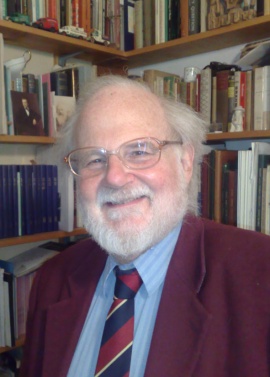
Robert Pascall (Editor)
Prof. Dr. Robert Pascall (b. Colwyn Bay, 1944, d. June 9, 2018) studied under Sir Jack Westrup at Oxford. He wrote books, analyses and editions of music from Bach to Schoenberg, with a special focus on Brahms. He was Professor and Head of Music at the University of Nottingham 1988-1998 and at Bangor University 1998-2005.
Until his death he was Honorary Professor of Music Philology at the University of Cambridge. He acted as Vice-chair of the new Complete Brahms Edition from its inception in 1991 and was then a member of its Beirat. He edited the symphonies for this edition, including Brahms’s own arrangements of them for piano duet, and advised conductors and orchestras on historically informed performance of Brahms’s music. He was President of the Society for Music Analysis 1996-2000, and was Corresponding Director of the American Brahms Society and an Honorary Member of the Royal Musical Association.
Product Safety Informations (GPSR)

G. Henle Verlag
Here you can find the information about the manufacturer of the product.G. Henle Verlag e.K.
Forstenrieder Allee 122
81476 München
Germany
info@henle.de
www.henle.com
recommendations
autogenerated_cross_selling
Further editions of this title
Further editions of this title


